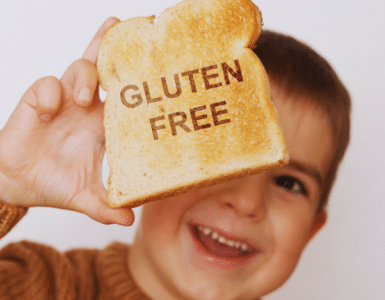Porn is a touchy subject, especially when it comes to young people. There has been a lot of fear-mongering and exaggeration about “porn addiction,” especially from extreme parenting sites. But what is the truth? And how does pornography affect the teen brain, if at all?
Given the ethical issues with conducting a porn addiction study on minors, there’s not really any clear data on the topic. However, if we look at research on adult use, and factor in what we know about teen brains, we can get some idea of how digital pornography may be affecting young people still in the midst of sexual development.
Porn Addiction — The Research
Dr. Donald J. Hilton from the Deptartment of Neurosurgery, University of Texas Health Science Center, has conducted extensive research on pornography’s neurological impact. He finds “addiction” a divisive term when it comes to sexual behavior, reminding readers that human behavior regarding food and sex is part of basic survival.
So it’s natural for humans to be interested in sex — and it’s normal for teens, too.
When it comes to teens, the issue lies less with a possibility for addiction, and more with a dependence on pornography for sexual exploration and development. In short, the internet isn’t the best place to learn healthy sexual behaviors.
Porn is a Business
The porn industry is just that: an industry. It’s entertainment, for profit, like movies and TV. And, needless to say, it’s not realistic. Pornography can distort a young person’s view of sex, setting unrealistic expectations for future partners — and themselves. “I’ve seen a definite increase in self-esteem problems because of porn,” Maliniak admits.
ALSO: Omegle is the Lesser Known Chat Site That Endangers Children
According to the American Psychological Association, the average age of exposure to internet pornography is around 13, and many articles claim it’s often even earlier. At this impressionable age, consistent exposure to sexual content can warp a teen’s view on consent and respect, especially given the amount of violent and derogatory material available.
For the health of your child and their future relationships, it’s important to start having conversations about sexuality before free internet use is permitted.
“If children are asking questions about sex, or have access to a cell phone or computer, it’s time to start talking to them about it,” advises Maliniak. “It’s important to talk to them as soon as they can comprehend their bodies and ‘good-touch wrong-touch.’”
Porn Addiction — The Problem
Popular talk about “porn addiction” focuses on desensitization and “dopamine bursts,” but these theories aren’t well-founded. Even among adults who are self-described as “sex addicts,” studies have shown that human brains don’t respond to sexual stimuli in an “addictive” way.
Regular porn users may have high libidos, but sexual content has not altered their “reward pathways” as commonly thought.
However, Hilton notes that obsessive use of pornography can be compared to gambling and food addictions, as the addiction is to a process, not a chemical substance.
ALSO: Should Parents Allow Teens to Drink at Home?
“A habit can become an addiction — we develop neural pathways in our brains when we do something constantly,” says Michelle Maliniak, licensed professional counselor with a Masters in Counseling from the University of Phoenix.
“Early exposure to pornography is stressful for a child’s brain,” she tells Parentology. “If a brain is stressed during development [by sexual and/or violent content], disorders like PTSD, anxiety, depression, and ADHD can result.”
What Should Parents Do?
1. Don’t Judge
Sexual exploration is a natural and healthy part of development. If you make this clear to your child, they will be more likely to trust you and come to you if they see something that makes them uncomfortable.
“It’s almost a sure bet your child will be exposed at some point,” Maliniak admits. “Educate them so that they are ready to protect themselves. Never shame them about asking questions or telling you what they have done or experienced. “
2. Stay Connected
Your teen is discovering their self in a lot of ways. Staying supportive in other areas of their life will encourage them to come to you about more difficult topics.
3. Discuss the Realities
As mentioned before, porn isn’t realistic — like movies and TV, it doesn’t reflect real life or healthy sexual behavior. Have a conversation about consent, and reference other media, like video games, to explore your teen’s views on portrayals of sex and violence.
“Children are naturally curious about sex,” says Maliniak. “They will want to know about it, and it’s important they get the correct information — from you.” She adds, “If you are uncomfortable talking about sex, your child will be uncomfortable asking.”
4. Limiting Internet Use
Pornography is usually viewed at night when teens go long stretches of time with technology unsupervised. Try limiting tech use to daytime, and provide alternatives for sexual curiosity, like educational books on puberty.
Take a look at the Amazon Best Sellers List in Children’s Sexuality for age-appropriate ideas.
“Proper education, honesty, and openness are solutions,” Maliniak says. “Make the time in your life to provide them — for the health and safety of your children.”










Add comment